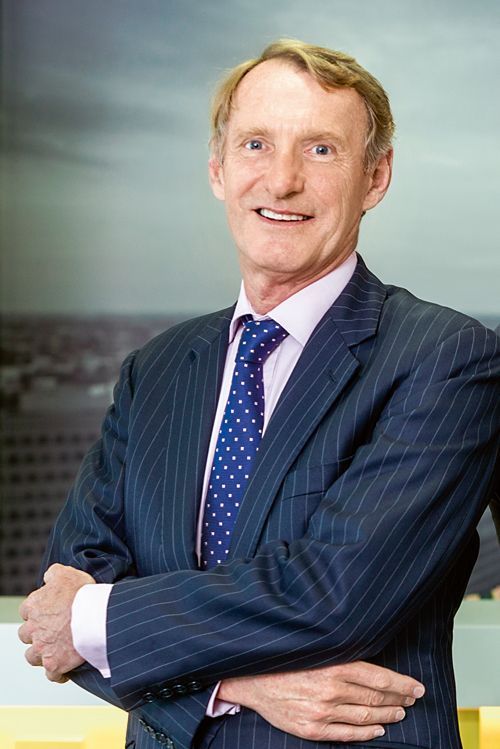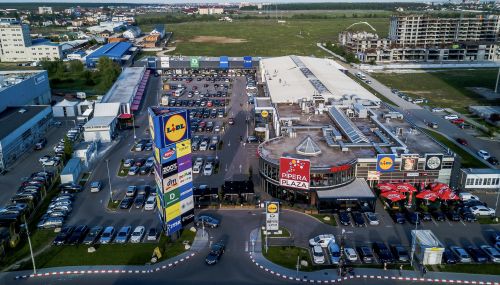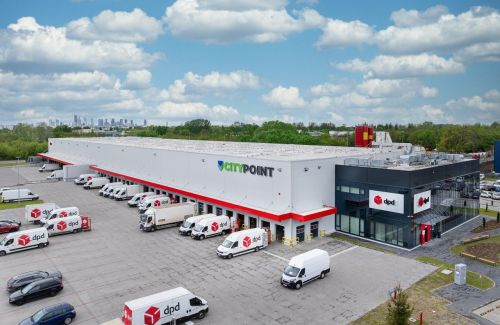The personal touch
Investment & finance
Nathan North, ‘Eurobuild CEE’: Since you’re visiting us here today, how important is this market and your Polish branch in terms of your overall activities?
Jeremy Helsby, group chief executive, Savills plc: This is a big market for us – and we now have over 100 people here. Poland is very important and Warsaw is one of our largest operations in Europe, where we see lots of opportunity for growth. Our philosophy works here: we’ve always said that we don’t want to be the biggest – we want to be the best. We are not aiming to be the biggest in terms of size, but certainly to be the best when it comes to quality. “We’re not a sausage-machine!” – is what I say to our clients. We advised on the Redefine and Echo transaction, which was the biggest deal of its kind in the history of the Polish real estate market. So we very much punch above our weight. However, we’ve still got some way to go, since we are relatively young at only twelve years in Poland – out of Savills’ entire 165-year existence. Therefore we’ve got to be patient – but patience isn’t one of my greatest virtues.
And does the confidence you have in Poland mostly stem from the strength of the Polish market and economy? Or rather, what are the main factors that you find attractive about the country?
Looking at Poland from a global perspective, cap rates and yields are at record lows of around 5.25 pct, as opposed to where they used to be, at 6 or 7 pct. But if you buy in central London you’re looking at yields of 3 or 4 pct. This might be comparing apples and oranges, but Polish yields are still highly attractive. All the big US investors and all the big German funds are active here – and that’s going to continue into the future. However, you can have all the sexy buildings you want, but you still need to fill them with tenants, as Poland is managing to do. The country has a highly educated, trained and professional work force, so it is very attractive to international occupiers. Consumers are spending money and so the retail is great – particularly shopping centres – and all this is totally sustainable and by no means a blip. There is the argument that there is an over-supply of offices in Warsaw’s downtown – but without that kind of available space you wouldn’t have been able to attract giants such as Google. In all, you’ve got the buildings, the people, the infrastructure and low taxes – and this is a wonderful cocktail. However, even when you have a pool of such talent, whether you are Google or Savills, finding the right staff is always a challenging process. But Warsaw is a great city, people want to live here, it is full of restaurants and has good housing in residential districts.
You are mostly known in this country for your work in the office and retail markets. But are there other segments that you are looking to improve upon?
We are not as involved in some segments of the market, such as industrial, as we could be – and we would definitely like to be. We have only been active in retail for about 18 months, but globally this is a very big area for us, so it has definitely got great potential for us to expand into. We would also like to continue to grow the consultancy/valuation side of our operations. Property management is still a core part of what we do – even though it has the lowest margins, it is still the most secure and long term business. We’re still young here, so the sky really is the limit. People actually prefer to work for… let’s not say, “the underdogs”, but for the young, enterprising firm, rather than for the more complacent big boys. And when you grow the brand, it becomes much easier to recruit. In the last two years we’ve already recruited 70 more enthusiastic people, which has much to do with Tomasz Buras, who has energised the operation. But the opportunity we have here is massive and I genuinely believe that in five years’ time we will be the go-to business in Poland in terms of reputation.
A couple of years ago, however, you pulled out of Hungary. Was this you closing the door on expansion into other markets in the CEE region?
We did “pull out” of Hungary, but we only ever had a ‘one man and a dog’ operation there in the first place. There is certainly pressure to expand across Central Europe. But once you get into smaller markets, the more difficult it becomes to find the right people, since there is a smaller pool of talent. In two years we should have added another market in the region, probably the Czech Republic.
Doesn’t the political situation in Poland – and other countries in the region – give you some cause for concern?
Not really. It’s fair to say that the Brexit vote is dominating our thinking. The political situation in Poland is not a concern. As a business we are neutral about the Brexit. And we should be looking at not just how the Brexit will impact the UK, but the EU as a whole. Investors want stability and certainty. A Hong Kong investor, for example, could decide to sit on the fence until the situation becomes clearer. So at the moment people have been using the vote to wait and see, which can be a little frustrating.
How would you describe your day-to-day approach? Do you lay more stress on the investment advisory side than on leasing, for example?
In the UK we have a cradle-to-the-grave approach, holding the hands of the investor at every stage. In retail, for instance, you can’t give proper advice to owners and investors if you don’t also do the tenant rep. They absolutely come together: knowledge from the leasing side means knowledge for the investment side. This gives added value to the investor – the first thing he wants to know is what the rents are. We are already strong on retail investment here, as this accounts for over half of our transactions but we are also strengthening the leasing side. We’re probably the leading retail investment agency so far this year.
If you came back here in five years’ time, where do you expect Savills to be?
In five years’ time, we expect that our office will have doubled its revenue and its work force. If we can be number one, not in terms of size, but in terms of client service, then I will be very proud and indeed thrilled. And this is entirely achievable. Savills is now 165 years old and although we are listed as a UK plc, 56 pct of our revenue is now from outside the UK – and this is a trend that is set to continue, since we are a very mature player on the UK market. But we will certainly be expanding all of our core operations more rapidly outside the UK. We came to the international table arena later than our rivals, but we are growing rapidly and are now a recognised advisor in all our major markets.
From land agent to corporate CEO
Jeremy Helsby graduated in 1976 with a diploma in land economy from the Royal Agricultural College, Cirencester. He was accepted as an Associate of the Royal Institution of Chartered Surveyors in 1979 and made a Fellow in 1990. Jeremy joined Savills in 1980 and was initially employed in the London West End office as a farm land agent. In 1984 he transferred to the US office in Washington DC to help establish Savills’ new US business and worked there from 1984–1987, advising overseas clients on the acquisition of commercial and agricultural US property. In 1988, he relocated back to Savills London City office, where he joined the leasing department with specific responsibility for Canary Wharf. In 1993 he became head of Savills’ City office, before becoming a board member of Savills plc in 1999, Savills Europe in 2000 and of Savills Asia in 2001. In 2000, Savills acquired FPD in Asia, which now comprises Savills’ large and successful Asian business – and Jeremy was a key member of the team advising on the EUR 35 mln acquisition. In 2001 he was appointed as chairman and CEO of Savills UK Commercial. At the same time, Jeremy was also appointed CEO of Savills Europe. In May 2008, he was appointed group chief executive of Savills plc. In 2014 he led the acquisition of Studley in the US for USD 260 mln, the largest in the company’s history.





















































